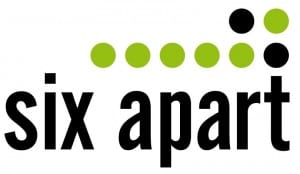10 Years of PT: 2007 – Turning the Tide on Scraping
 Note: This post is part of an ongoing series, you can read the other posts here.
Note: This post is part of an ongoing series, you can read the other posts here.
If 2005 was the year Plagiarism Today was founded and 2006 was the year that it began getting real attention, 2007 was the year that it began to expand and I moved into some very big new areas.
The two biggest changes happened exactly one week apart in May of 2007.
First, I appeared on Episode 5 of the Copyright 2.0 Show by Chris Matthieu. At that time, I was a guest on the show but, by Episode 7, was a permanent co-host on the show.
Second, for the first time in my history, I began being a staff writer for other sites. On May 14, 2007 I posted my first article on the Blog Herald. I would continue to blog there until 2011, but reappear for a few additional guest spots in 2013.
Those two changes were fruits from friendships I had made in the previous year, Chris Matthieu and Lorelle VanFossen respectively. Chris, having recorded four podcasts by himself, was eager to get a reliable co-host for the show emailed e about the idea and Lorelle put me in touch with the Blog Herald, which became my first ever paid writing job.
May also saw Plagiarism Today getting involved in the Digg HD-DVD controversy, where users of the site openly resolved over attempts by Digg to remove the HD-DVD DRM key from posts on the site. While the users at the site were revolting over alleged censorship, an article I had penned the day before comparing the Digital Millennium Copyright Act compliance on social news sites (one that actually mentions Netscape) became part of the fray (in a neutral way).
But as crazy as may was, it was just one month in a very busy year for me and the site. Taking a look back, 2007 was definitely one of the most memorable and most important years in the site’s history.
Copyright and Plagiarism in 2007
 As we walked into 2006, Bitacle was active and Michael Crook was still avoiding his lawsuit. By March though, neither of those things were true. Bitacle was not updating and never replaced the ads and Michael Crook settled his case.
As we walked into 2006, Bitacle was active and Michael Crook was still avoiding his lawsuit. By March though, neither of those things were true. Bitacle was not updating and never replaced the ads and Michael Crook settled his case.
Still, early 2007 was probably the lowest point for scraping. Not only was Bitacle still a looming threat, but another company named Omgili (which stands for “Oh My God, I Love It!”) began doing something similar with forums. It not only seemed like scraping was here stay, but that it was being codified as a business model.
This point was driven home by a series of studies that found the majority of blogs on free services such as BlogSpot, AOL, MSN and elsewhere, were spam, with much of the content scraped.
Fortunately, 2007 was the year that the Internet began to really fight back. Much of the fighting back was ideological. In January, Jason Calacanis was a guest on This Week in Law, a podcast that’s part of the This Week in Tech network (the show that previously mocked Plagiarism Today). They discussed the issue of RSS scraping at length and Calacanis steadfastly maintained that having an RSS feed was not permission to republish it, a controversial idea at the time.
However, by spring in 2007, the tide began to turn on scrapers. In April of that year Six Apart, which owned LiveJournal, turned on a “Syndication” feature for LiveJournal that basically brought in outside RSS feeds and republished them in user blogs. However, Six Apart quickly backed away from the feature after an outcry from bloggers.
In June BlogSpot, then one of the biggest spam blog hosts, launched an offensive against spam blogs and changes in the Google search algorithm actually began to punish spam blogs where it hurt. Finally, WordPress.com began to grow and establish itself as a prominent blogging network though, at the time, it was almost completely free of spam (Side Note: This article was featured on the front page of Techmeme).
Though spam blogs and scraping weren’t eliminated in 2007, the tide was turned against them in a very big way.
In other copyright news, YouTube had a big, controversial year. In one story photographer Lane Hartwell took on the a cappella group The Richter Scales over a viral YouTube video. The band had released a song entitled Here Comes Another Bubble, a parody of Billy Joel’s We Didn’t Start the Fire, and featured a photograph she took without permission, attribution or any license. When Hartwell protested, the band initially offered her attribution on a separate page but she eventually filed a DMCA takedown notice to get the video removed.
The band later released version 1.1 of the video, which included attribution and removed Hartnell’s photo. That version remains online today.
However, in mainstream copyright news, the big story was Jammie Thomas and the $222,000 judgment that a jury awarded against her for file sharing. Obviously, that wasn’t the end of the case as there were two additional jury awards, each of which were higher, before the original jury award was upheld.
In short, 2007 was the year the Web fought back against scraping and spamming, but it was also the year the chorus against the RIAA litigation tactics were the loudest. It was an interesting time for copyright and a year that I won’t quickly forget.
Most Popular Post
Using the same standards as the other posts, looking back over the past 90 days of traffic stats, the most popular post from 2007 today is a small tip post I did for getting around an IP block.
The article was actually sparked by Bitacle and a couple of other sites that, so frustrated by my campaigns against them, had taken to blocking my IP address and range. I found easy ways around those blocks.
However, the article really isn’t relevant in 2015. It makes no mentions of virtual private networks (VPNs), which are the tool of choice today for this. Still, the trick of using Google translate is an interesting one.
Behind the Scenes
 Behind the scenes in 2007, there was a great deal going on.
Behind the scenes in 2007, there was a great deal going on.
The biggest change for me personally was the purchase of our house. After two years of discussion, Crystal and I decided to make a permanent home here in New Orleans, buying a home in a neighborhood we loved (and continue to love). Not only did this give me a dedicated office, but it also gave us a huge garage to move our haunted house into.
In other news, 2007 also saw me take up consulting and paid blogging as a full time job. I had started a job at a local publishing company that I was very excited about but I was poor fit for the position. My skills were not what they wanted the relationship quickly deteriorated. After just a week of employment, we parted ways.
At the encouragement of Crystal, rather than immediately seek other employment, I made a go out of turning consulting a full-time job. I picked up a few additional clients, Blogged for the Blog Herald and expanded my hours with Attributor. Between all of those things, I had what I needed to go full time. I only briefly looked back but that’s a story for another year.
It was also a year that saw me meeting great colleagues in the field of plagiarism including Dr. Deborah Weber-Wulff at the HTW Berlin. She reached out to me in August of 2007 after I reviewed a service named iPlagiarismCheck. She had been doing her own studies and suspected that the service was simply using Turnitin illegal to make its own service.
She turned out to be correct and the two of us have remained in contact ever since, with her plagiarism detection tests being a cornerstone of not just this site, but the entire industry. Especially happy that I’ve been able to meet her at least twice at the International Plagiarism Conference.
The other really lasting friendship from 2007 happened in January of the year when I met my good friend and constant force for good Patrick O’Keefe.
Patrick wrote me to ask if I would appear as a guest on his Community Admin Show. Sadly, it’s still not available online but the first meeting on a podcast was more than fitting because he would go on to be a long-running co-host of the Copyright 2.0 Show.
But we’ve done so much more than that. Not only was he the one who brought Omgili to my attention, we also worked together on Global Grind and countless other stories. However, we didn’t actually meet face to face until 2008 when I spoke at ConvergeSouth. Since then we’ve met a few more times, including when we spoke on the same panel at SXSW 2012 and again when I spoke at SXSW 2014.
Patrick truly is the best kind of friend that you can have. He is kind, forgiving and always does the right thing. I’ve sometimes called him my conscience and there have been many times I’ve made a decision about what to do based up on what Patrick would do. Quick with a kind word, always eager to help and always on the right side ethically, many people search a life time for a friend like Patrick and I am beyond fortunate to have met him.
So thank you Patrick for being the star of 2007 and for being a great friend eight years running.
Bottom Line
Looking back on this year, it was clinically insane but incredibly wonderful. My notes are filled with stories that I wasn’t able to touch on such as the U.S. Copyright Office developing its online registration system (which was dated when it launched and still hasn’t been significantly upgraded) and the Fark licensing Controversy, which would be the first of many such licensing controversies, just to name two.
Still, for me, this was a banner year. It was the year scraping and splogging found itself on the retreat, I was working full time on copyright and plagiarism issues, I made some great friends, joined an awesome podcast and even bough ta new house.
2007 remains one of the best years for me personally and for the site. No doubt about it.
Want to Reuse or Republish this Content?
If you want to feature this article in your site, classroom or elsewhere, just let us know! We usually grant permission within 24 hours.
